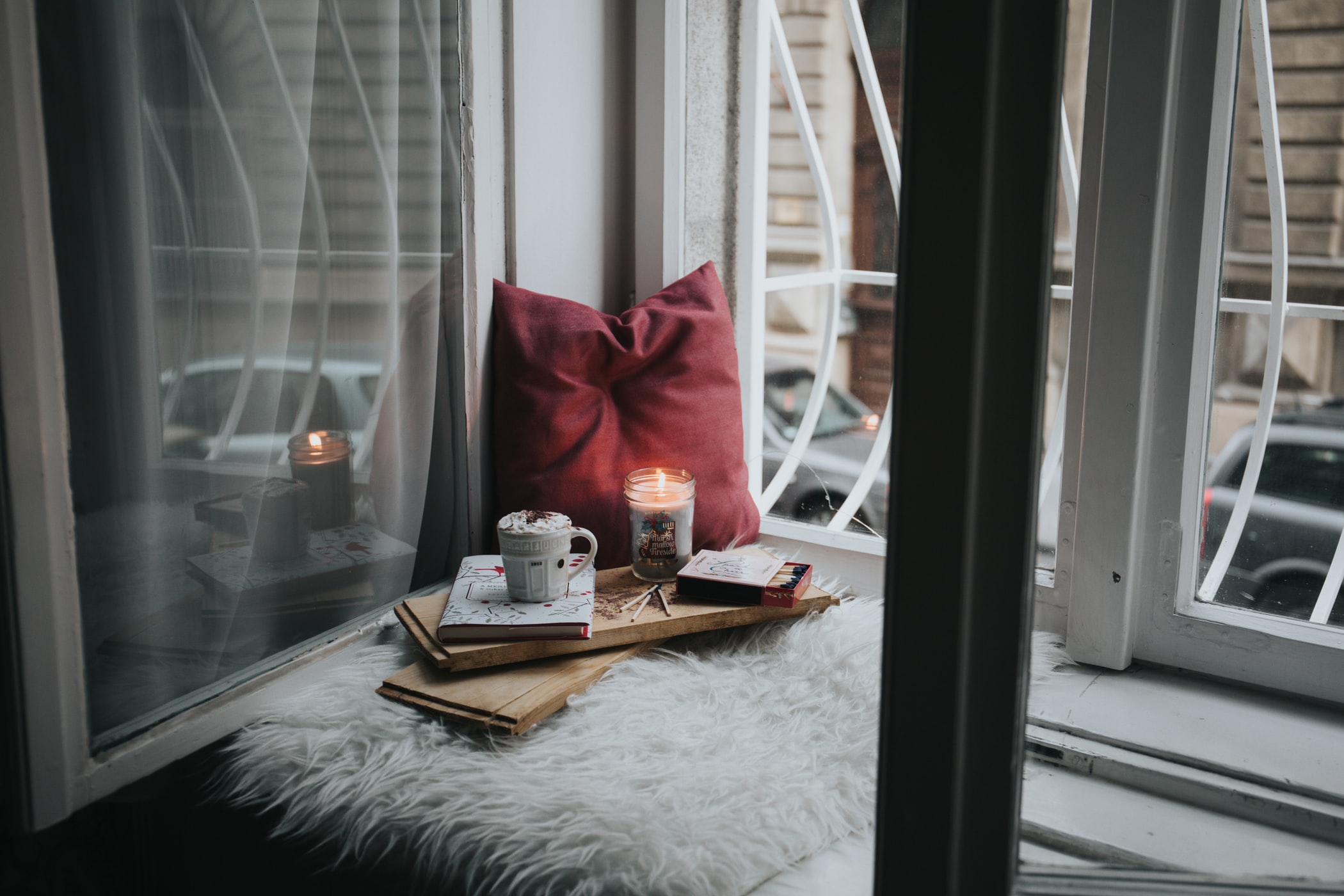
Caring for Yourself in the Time of Coronavirus
For most of the people in my community and beyond, the last two weeks have been at turns surreal, frightening, devastating, and deeply uncertain. We live in a time of dramatic change, during which the global, national, and regional situation is rapidly shifting. There is constant news spilling in about businesses temporarily or permanently shutting their doors, entire regions being quarantined and placed under curfew, and efforts to alleviate the mounting pressure that the public health crisis will place on our already-struggling healthcare system.
While I absolutely know there are opportunities at hand, I am also well aware that we cannot deny the urgency of our concerns—chief among them, the fact that none of us are immune to this spreading pandemic.
It is so important, now more than ever, to see exactly how interconnected we are, and just how small the world really is.
I can say that I’ve been on a tumultuous ride lately. Just a little over two weeks ago, I felt the media was blowing the virus out of proportion. Of course I knew it was serious, but at the same time, the threat did not feel immediate and it seemed that it could be mitigated with a few vital actions. Moreover, I didn’t think it was productive to allow panic to set in.
But as time passed and the reports became more extreme, I recognized that not only is the situation worsening—it is directly impacting the lives of many people, including those who live in the Seattle area where Women For One is based, and where the virus is taking its toll in high numbers compared to many other parts of the country.
Clearly, we are in the midst of an unprecedented crisis. While I still believe it’s important not to panic, as the leader of a global community, I understand that it’s my responsibility to remain informed, alert, and grounded, so that I can educate myself and spread the knowledge I’ve gathered to those in my community.
This is truly what all of us are being called upon to do. We must each be leaders and good citizens, especially because we simply don’t know how long this crisis will continue and are tasked with doing whatever we must in order to get through this time.
It can be overwhelming to keep the big picture in mind, but we can absolutely contribute to one another’s well-being. Here are some ideas for how you can care for your physical, mental, emotional, and spiritual health right here and now.
1. Take the proper safety precautions.
You’ve heard these before, but they bear repetition. It’s critical to practice social distancing (keeping at least six feet away from other people) when you are in a public space and among larger groups of people. If possible, please also self-isolate and stay close to home, especially if you are at greater risk of poor health impacts or if you think you have the virus. Contact your health provider or local clinic as soon as possible if you are showing any symptoms.
Also, limit any unnecessary travel. If you have to go out in order to get supplies, consider using a delivery service or a pickup service whenever possible.
It goes without saying, but be sure to wash your hands often with an antibacterial soap for at least 20 seconds at a time. Refrain from touching your face, which can contribute to the spread of germs. Be diligent about cleaning surfaces and countertops, as well as disinfecting smartphones, computers, and other gadgets that you use often.
Overall, keep an eye out for updates on the situation, and any further recommendations on how you can keep yourself and your loved ones safe. Also, even if you believe that you are not at risk for contracting COVID-19, remember that many people who contract the virus are asymptomatic and may not show any signs of it. So even if you think you’re “safe,” you could very likely be spreading the virus to people around you who are more susceptible to its ill effects. Because it is very likely that our healthcare system will be outside its capacity to adequately treat everyone who contracts the virus, we must each do our best to flatten the curve and minimize the risk.
Remember, this is not just an individual public health issue. It is a global one, so please act responsibly and consider the people around you.
2. Connect to trusted news and information sources.
There’s an enormous amount of misinformation that is being spread via social media, and other outlets, so be sure that your news sources are trustworthy. It’s especially important to read about what’s happening from the science and public health perspective. Read what medical doctors, public health officials, and scientists are saying with respect to this situation and recommendations for what we as individuals and communities can do about it.
Also, I know it’s easier said than done, but please try not to panic or spread hearsay/repost memes that may contain misinformation; while this may seem harmless enough, it can take a real toll on people’s lives.
I’ve posted a number of articles, including resources on how to vet your information, at the end of this blog.
Oh yeah, and take plenty of breaks to watch cute cat videos on YouTube. It is so important to remain informed, inspired, and uplifted without giving in to the panic. Stay strong.
3. Connect with loved ones and your sisterhood.
We are a species that flourishes on and requires connection, so it’s no surprise that even in a time of social distancing, we are finding more opportunities than ever to connect via platforms like Zoom and FaceTime.
It’s especially important to keep our spirits up by making time for loved ones, even if only virtually. So, if you have to schedule calls and video meetings into your calendar, be sure to do so. Remember that you’re not alone—and take this opportunity to remind your loved ones, especially those you can’t be with right now, that they aren’t, either.
4. Start or join an online support group.
Thankfully, there are many communities that are coming together virtually to do things like meditating and grounding together, or simply offering each other support.
If you don’t know of any online groups, reach out on social media and see if you can gather a group together, or connect with your community of friends and colleagues to gauge interest in some kind of regular circle, whether you are meditating, dancing, exercising, co-working, or engaging in some other activity together.
5. Start a project you’ve been procrastinating on.
It’s important to give yourself plenty of time to rest. But many of us have projects that we’ve been putting off because we’re so caught up in work and productivity that we forget about the things that are really important to us. Maybe there’s a home improvement project you would like to begin. Perhaps you’ve always wanted to start an indoor garden. Or maybe it’s high time you write that book you’ve been sitting on for years.
Let yourself connect to activities that are deeply nourishing for you and that inspire a sense of creativity and newness in your life. Now is as perfect a time as any to come back to yourself and prioritize your passions.
6. Engage in a grounding practice.
Most of us are likely to cycle through some very intense emotions in this time. Because of this, it is important to stay grounded and connected to yourself. Please check out my most recent blog for a simple four-step process that you can use to calm anxiety and soothe your nervous system whenever you need to. Feel free to share it with others.
7. Nourish your body.
This includes eating a spectrum of healthy foods, staying hydrated, and getting enough sleep.
One of the more positive aspects about the pandemic is that it’s giving us an opportunity to unhook from the rat race of constant work and constant productivity. This is so important, as we must be extremely vigilant about guarding our physical and mental health at this time.
During moments of high stress, our bodies need a lot more space for processing. This means that most of us will likely find that we need extra sleep. Make your sleeping area warm and safe, and give yourself plenty of breaks from your daily routine. This is a vital opportunity to go inward—please be sure to take it.
Also, unplug when you can! Obviously, we’re being called on to connect via virtual spaces these days, but it’s also a good idea to unhook yourself from technology and pay attention to your body’s needs. A digital detox from time to time could be just what the doctor ordered.
See if you can get out in nature, and give time to building a simple exercise routine so that you can keep your mind agile, your body limber, and your immune system strong. Ensure that you are caring for your full-spectrum health.
8. Nourish your soul.
This can look a lot of different ways, but it’s just as vital as nourishing your body!
What is it that you absolutely love to do? Whether that’s scrapbooking, watching old movies, beading jewelry, or baking, it is times like these during which we must prioritize our joy and passion.
Also nourish your soul by taking plenty of mental health breaks and engaging in mindfulness meditation, yoga, or anything else that makes you feel centered and present.
9. Remember our shared humanity.
Once again, although we tend to think of ourselves as a separate and atomized society, we all know deep down that this couldn’t be more untrue. Experiences like the one we are in the midst of drive home the point that we are more alike than different. Nurture a vision of healing for our fragile lives. This should include and encompass every single being on this planet. We are in an uncertain moment in our civilization, but it is exactly moments like these that call upon our utmost tenderness, compassion, and love for one another.
10. Help those who need it.
With so much uncertainty among us, it is easy to fall prey to fear. For many of us, our routines have been entirely disrupted and we have no idea what our individual futures hold; for others, we may be feeling vulnerable and hard hit by these times, especially if our income has been hit or we have small children and elderly relatives to care for.
I encourage you to sit with the truth of whatever you are experiencing, but please know that fear-based thinking hurts us more than it helps us. Obviously, we are seeing this at play in the number of people who feel the need to hoard supplies because they are worried about what might happen tomorrow, and whether or not they will have enough. Unfortunately, the hoarding mentality leaves less space for others who might have greater need than we do. Moreover, any fear-based thinking keeps us from identifying creative opportunities that can contribute to our collective wellness.
Although it may seem difficult, practicing generosity can help us to see and acknowledge exactly how much abundance is in our midst. There are more than enough resources for all of us, and we simply need to open our hearts to each other in order to see this.
Of course, I want to wholeheartedly acknowledge that while your concerns for yourself are absolutely warranted in this time, there may be people around you who are much more vulnerable and susceptible to the pitfalls of this virus. If you are able to, try to do things as simple as donating to organizations in your local community that support vulnerable populations like elderly people or those who are homeless. In addition, the businesses in your community have probably been significantly disrupted by the pandemic, so consider doing a drop-in online yoga class with your local studio, or purchasing gift certificates from your fave local restaurant if you are able to.
11. Know that your gifts are valuable.
It can be really easy to get overwhelmed by a sense of powerlessness, and a loss of meaning or purpose. But the truth is, your gifts are more needed than ever.
Think of what you’re really good at, what you shine at, and then commit to sharing it with your community, whether it’s your immediate family, people in your network, or digital friends you connect with on social media.
We have so much more to give than just money or specific resources. It could be as simple as offering kindness or your presence to someone who needs it. Small acts of generosity go a long way and can also inspire others to pay it forward.
12. Welcome your emotions.
This is not a time to stuff down our emotions. It is time to give voice to them, and allow them to flow through our bodies. That doesn’t mean that we need to spin out in our stories about what’s happening to us. Rather, we need to give ourselves space to express our vulnerability and uncertainty.
Have a good cry if you need to. Shout it out, stomp it out, dance it out. This is an important time to stay present with yourself, and the only way you can do that is to acknowledge what is happening with the utmost compassion.
We’d love to hear from you. Send me an email at info@womenforone.com with a couple sentences about how you are using the pandemic as an opportunity to care for yourself and your loved ones. Also, please feel free to send us any resources that you would like to share with the Wf1 community, whether it’s a website with inspirational talks or a platform for community connection and wellness.
As each day brings with it more news, some of it positive and some of it harrowing, prepare yourself for the transformations ahead by looking out for your number one. We need you, and we need each other.
Important Articles and Sources of Information About COVID-19
“These Organizations Are Helping People Get Food and Medical Help During the Coronavirus Pandemic,” Buzzfeed News “Can a Face Mask Protect Me from Coronavirus? COVID-19 Myths Busted,” The Guardian “The Coronavirus Crisis Is Showing Us How to Live Online,” The New York Times “How to Attend AA, NA, and Other Support Groups Online,” The Next Web “Why Outbreaks Like Coronavirus Spread Exponentially, and How to ‘Flatten the Curve,’” The Washington Post “Practicing in a Pandemic: Six New Teachings on How to Find Compassion and Equanimity in a Time of Great Uncertainty,” Tricycle “Our Calm Is Contagious: How to Use Mindfulness in a Pandemic,” Vox Collection of Resources on the Coronavirus Outbreak, New England Journal of Medicine The Best Sources for Updates and News on the Coronavirus, Real Clear Science Coronavirus Disease Advice for the Public, World Health Organization Coronavirus Updates, Worldometer










0 comments to "Caring for Yourself in the Time of Coronavirus"